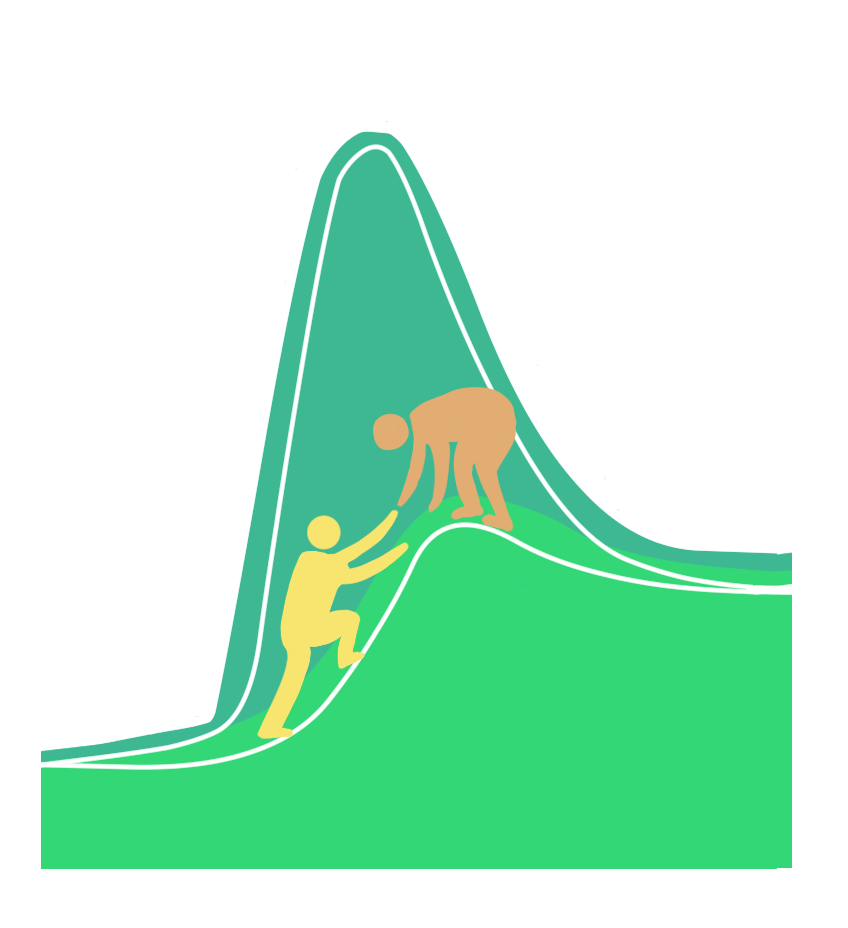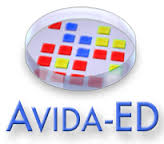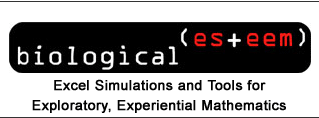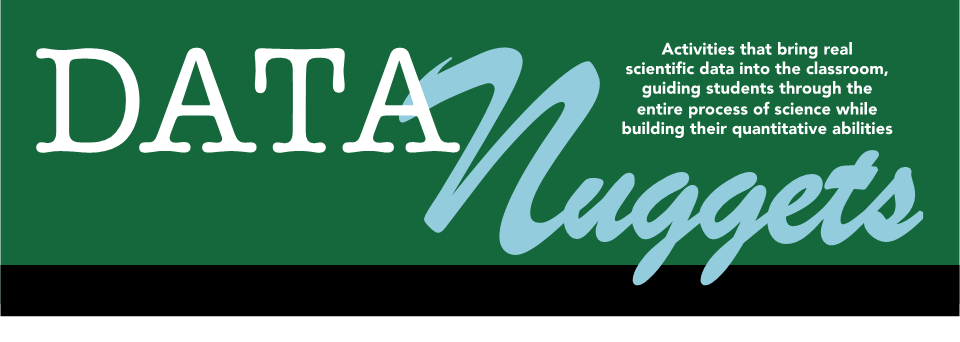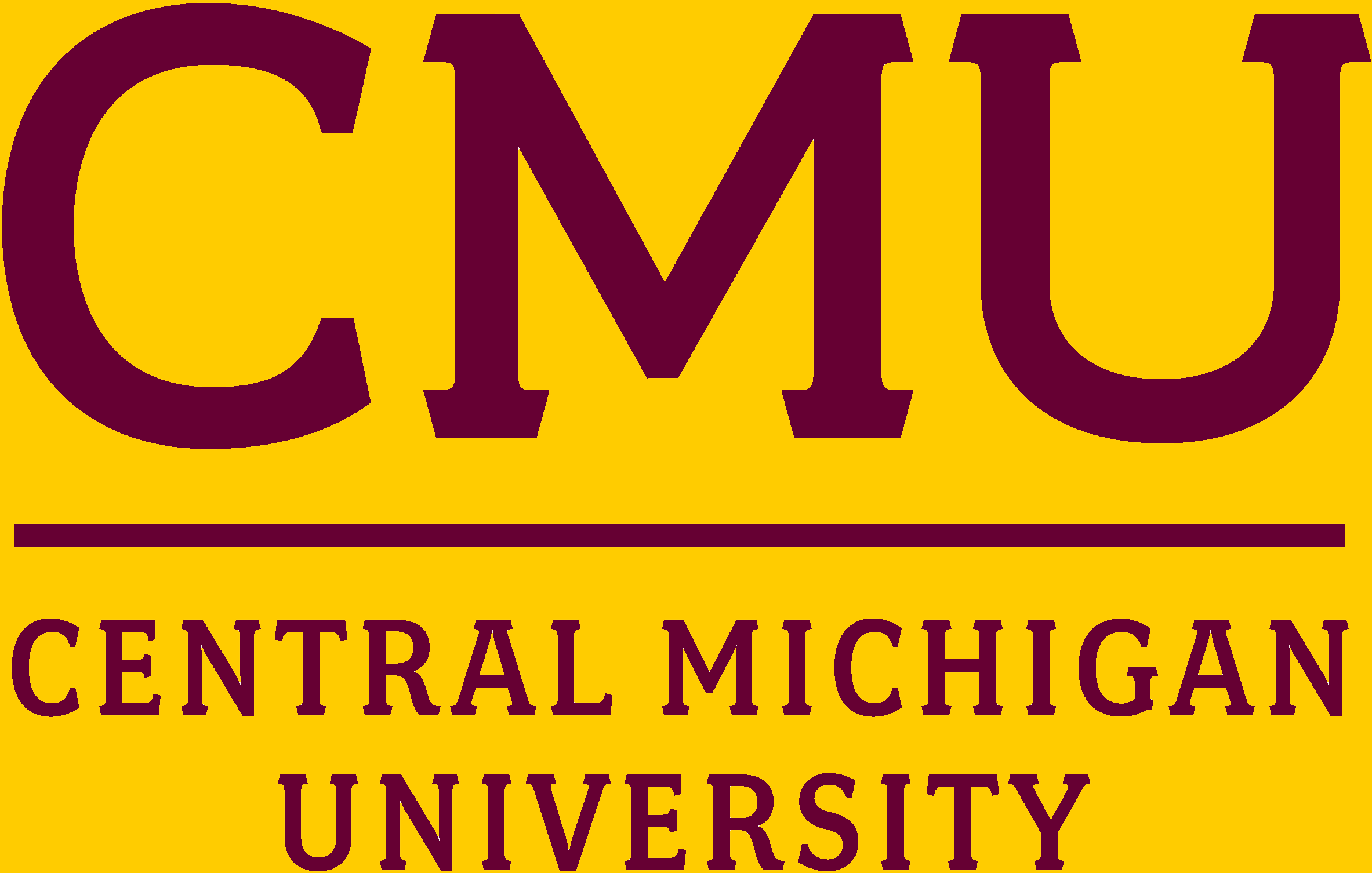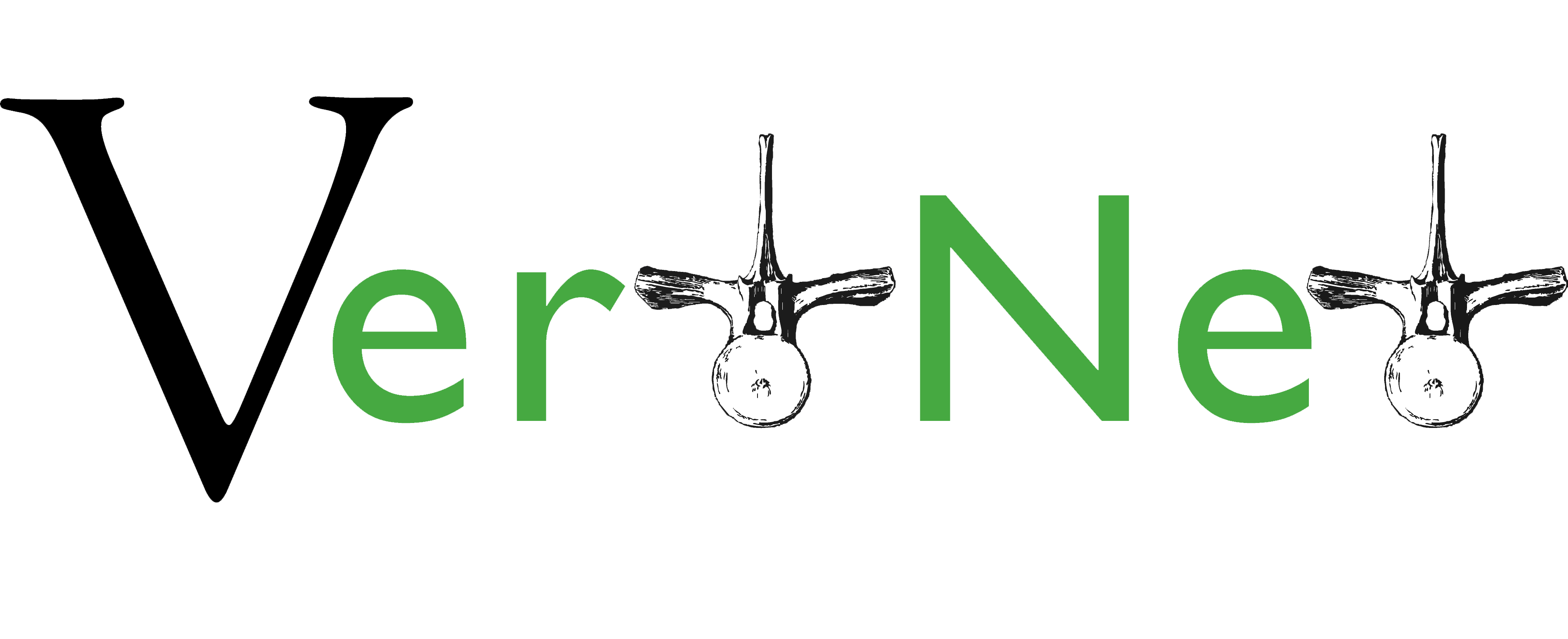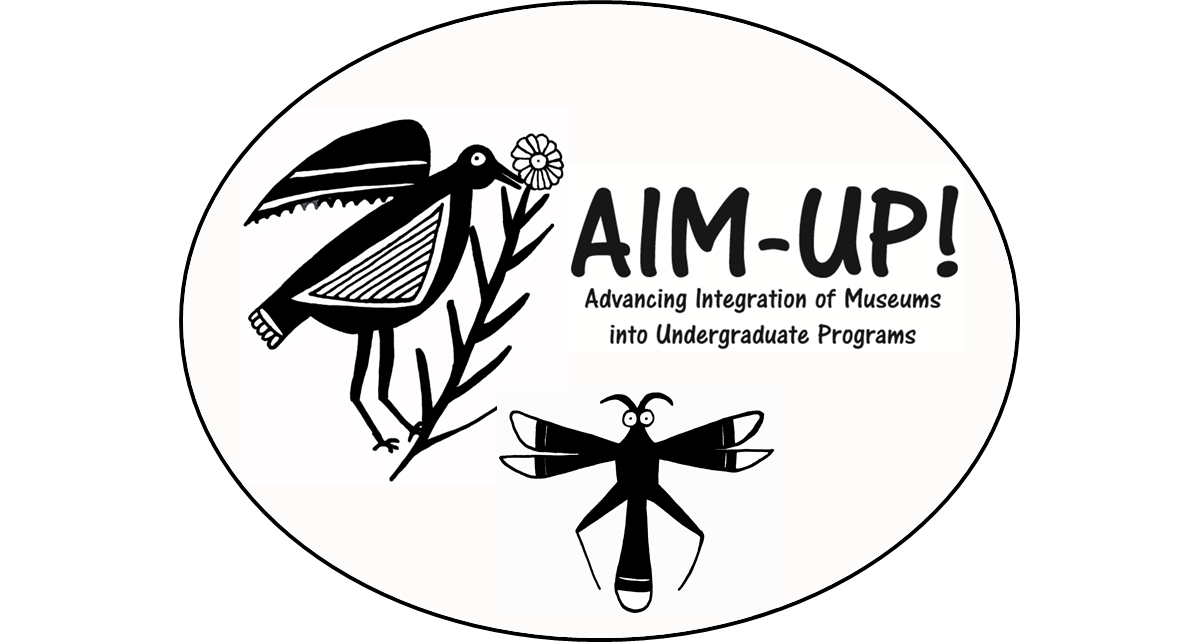The following sessions will be offered on Monday, June 20. Sessions will be 2 hour long, hands on introductions to resources and pedagogical approaches. There will be three rounds of sessions (10:15am, 1:30pm, 6:30pm) and many of the presenters will be available throughout the week.
Some sessions have material that should be downloaded prior to the start of the session. Clicking on links below descriptions will download the material.
Avida-ED: An artificial life platform for teaching evolutionary principles and how to "do" science
Description:
Participants in this session will learn how to implement the artificial life platform, Avida-ED (avida-ed.msu.edu), in their classrooms. We’ll begin by describing the Avida-ED curriculum that we implemented in an Introductory Cell and Molecular Biology course at Michigan State. Avida-ED was used primarily in the teaching lab, in parallel with a bacterial antibiotic resistance experimental research stream, allowing students to draw connections between Avidian evolution and the evolution of antibiotic resistance in microbial populations. Using Avida-ED. participants will complete a short set of exercises, each focused on teaching particular evolutionary concepts, that we used to familiarize students with Avida-ED. We’ll then describe independent Avida-ED research projects carried out by our students using Avida-ED. These activities will provide the basis of a discussion about how workshop participants might implement Avida-ED lessons and/or research projects in their own courses. We’ll also present education research results showing how Avida-ED use relates to student learning of evolutionary concepts and science process skills.
For more information about Avida-ED click here.
Integrative Cases for Evolution Education
Description:
Many teachers find evolution difficult topic to teach and many students find evolution a difficult topic to learn. Part of this difficulty stems from the complexity of the evolutionary process that requires knowledge spanning across biological subdisciplines to fully understand. In 2012, the Evo-Ed (http://www.evo-ed.org) project was launched, introducing resources to help educators teach evolution using integrative examples of trait evolution. Pre- and post-course assessments indicated that students who learned evolution in this context were more able to explain the molecular basis of mutation, describe how mutations lead to phenotypic change and make mechanistic links between genotypes and phenotypes. In this interactive BioQUEST workshop session, participants will learn about the integrative cases of trait evolution. By the end of the session, participants will be able to implement one or more integrative case in a classroom setting. Stemming from this session, we hope to identify faculty who are interested in helping to build new cases and/or build investigative problem spaces for one or more of the cases.
For more information about Evo-Ed click here.
Visualization Tools: Image J and Cell Profiler
Description:
Quantitative biology is increasingly relying on imaging to deliver comprehensive phenotypic information about biological systems. Computational image analysis, segmentation and feature extraction from biological images is the enabling technology to turn otherwise subjective visual inspection and manual measurements into sensitive, accurate and objective data. In this session, participants will learn how to use the open-source and freely-available software package CellProfiler, designed to quantify cellular images obtained by automated fluorescence microscopy. An image analysis pipeline will be developed to quantitate the effects of several potential anti-obesity drugs on lipid accumulation in human liver cells. A demonstration will also be provided on data reduction using a partial least squares (PLS) regression model to construct a multivariate scoring system.
Click the links for more information about Cell Profiler and ImageJ
Using R in the Classroom
Description:
Do you use R for research but are overwhelmed by the idea of teaching it in the undergraduate classroom? This workshop will focus on the benefits and challenges of using the statistical software R in undergraduate biology or biostatistics courses. We will discuss topics such as: How can you teach software without sacrificing content? Should R be taught as a statistical tool or is that ignoring its power as a programming language?
In this workshop, we will go through a hands-on example of incorporating R in an undergraduate introductory biology or biostatistics course, first collecting data in a ‘beanbag biology’ exercise that promotes intuitive understanding of statistical distributions, then using R to visualize, explore, and analyze the data. We will then discuss some of the pedagogical and implementation issues, and also share a variety of materials for teaching with R, using an introductory biostatistics course and a simple infectious disease modeling seminar as focal courses.
This session will be most helpful for current R users, people who are already somewhat comfortable in R, or people who know other programming languages/command line software and are willing to familiarize themselves with R ahead of time. If you are brand new to R, please consider taking Jason William’s Data Carpentry session before this one.
Workshop session page: https://qubeshub.org/groups/teaching_r/siworkshop
Agent-Based Models: an approachable context for introducing students to scientific modeling, programming, and simulation
Description:
Are you looking for a way to introduce the scientific value and intellectual process of modeling without simultaneously overwhelming students with mathematics? Are you looking for an easy entry point into coding for your biology students? Agent- or individual-based models implemented in the extraordinarily user-friendly NetLogo software could be your answer. Agent-based models (ABMs) are a tool to understand how the dynamics of complex systems arise from the traits and behaviors of individuals in the system. By explicitly straddling more than one hierarchical level (e.g., individual, population), they offer an alternative approach to the more familiar "aggregate" differential equation and difference equation models that most often ignore individual differences, spatial patterns, and adaptive behavior. Moreover, because ABMs are so easy to get up and running, student can work through the iterative modeling cycle (i.e. abstraction, formulation, analysis, interpretation/validation, repeat) even in limited class time, gaining a more robust experience of the modeling process. Session participants will be introduced to ABMs and how they complement other modeling approaches, introduced to NetLogo as a modeling platform, and will be led through a typical introductory lesson that could be adopted and adapted for immediate use in their own classes. Special attention will be paid to typical problems that arise in the classroom when introducing ABMs, and to how non-experts can gain familiarity and comfort with ABMs on their own with limited time investment.
Participants for the workshop should download and install NetLogo before coming to the workshop.
Materials from the workshop are available here.
How the Simplicity of Dots, Lines, and Dr. Suess Helps Us Visualize, Analyze, and Test Hypotheses About Binary Biological Relationships: Graph Theory in Biology

Date & Time:
Monday, June 20th
6:30 pm
Description:
The goals for this workshop are as follows.
● Learn how graph theory can be used to help obtain meaningful insights into complex biological data sets.
● Analyze complex biological networks of diverse types (food webs, genetic maps, gene expression networks, disease etiology) to detect patterns of relationships.
● Visualize ordering of modules/motifs within complex biological networks by first testing the applicability of simple linear approaches (interval graphs).
● Demonstrate that even when strict mathematical assumptions do not apply fully to a given biological data set, there is still benefit in applying an analytical approach because of the power of the human mind to discern prominent patterns in data rearranged through the application of mathematical transformations.
● Show that the visualizations help biologists obtain insights into their data, examine the significance of outliers, mine databases for additional information about observed associations, and plan further experiments.
To accomplish this, we first emphasize how graph theory is a natural fit for biological investigations of relationships, patterns, and complexity. Second, graph theory lends itself easily to questions about what biologists should be looking for among representations of relationships. We introduce concepts of hubs, maximal cliques, motifs, clusters, interval graphs, complementary graphs, ordering, transitivity, Hamiltonian circuits, and consecutive ones in adjacency matrices. Finally, graph theory helps us interrogate why these relationships are occurring. Basically, we examine the triptych of form, function, and phylogeny to differentiate between evolutionary and engineering constraints.
This session will utilize the following files:
javaFOODWEB (Community Food Web Excel files and Help and Menu files)
Data-based inquiry in the classroom using authentic research data from the Dryad Digital Repository
Description:
Looking for real datasets to use in the classroom? DryadLab modules encourage students to focus on core competencies such as critical thinking and data analysis by promoting an active learning environment for all students. Through the use of authentic data sets, students develop an ability to analyze and represent data to solve a problem, understand the relationship between the data and the hypothesis, cope with missing data, recognize confounding factors, interpret ambiguous results, and come to better understand how scientific knowledge is constructed – come learn how to use these materials in your classroom!
DryadLab on QUBES - links to the most-up-to date versions of the modules and collections of related materials
DryadLab website - links to older versions of the modules and a list of FAQs
Survivorship data in Google Sheets - Go to File > Make a Copy to start working with the data
Extinction data in Google Sheets - Go to File > Make a Copy to start working with the data
Extinction data in Radiant - Interactive statistics package that uses R and Shiny
Using The Analysis of Biological Data, Whitlock and Schluter
Description:
For this workshop, we will discuss the use of Whitlock & Schluter’s textbook "The Analysis of Biological Data" in an introductory biostatistics course. Some example topics include the level of mathematical rigor, amount of biological content, ways to include the statistical programming language R, and effective resources to supplement the textbook. Come ready to play! We will work through some of our favorite examples. General discussions and questions on how and where to include biostatistics in the general biology curriculum are also welcome.
The following link will be the working space for the workshop: https://qubeshub.org/projects/abdworkshop/notes
Closing The Loop: Development of Integrated Case Studies
Description:
Case studies provide an exceptionally effective means to engage students in the process of science in a lecture or discussion classroom format. While there are many benefits to the case-based teaching approach, one of the missing pieces is that case studies typically do not provide an opportunity for students to investigate topics, test hypotheses, or conduct experiments to evaluate and confirm their understanding of a topic. For several semesters, my students and I have tested Integrated Case Studies and developed a basic framework for their content and implementation. This session will aim to not only consider additional aspects of this type of research, but also potentially identify a team for further study of this approach.
Below are links that will be used in this session, as well as two files that should be downloaded:
Algae-Brine Shrimp Ecosystem worksheet
Food Chain Dynamics in a Simple Ecosystem
How Many More Thymes Case Study
To Build an Ecosystem laboratory
How to Teach to the Whole Room: Making the life sciences accessible to students with disabilities
Date & Time:
Monday, June 20th
10:15 am
Description:
"A student with a disability is taking my biology course? Oh no! I don't know what students like that need! I'm going to have to redesign my whole course, right?" Actually, teaching accessibly doesn't have to be scary or mean lots of extra work, even in the life sciences. In this session, we will take the fear and trepidation out of teaching science accessibly. Participants will engage in large group discussions and small group exercises that explore topics including, what disability means in an educational context, establishing and maintaining a dialog with students with disabilities, and concrete strategies for teaching in a universally accessible way. Bring your questions and personal experiences to share.
The ESTEEM collection: Computational tools to support modeling and analysis of biological systems at the introductory level and beyond.
Description:
In this session, I will introduce the Biological ESTEEM Collection, an online suite of Excel-based modules that facilitate mathematical exploration of a wide range of biological concepts. These modules are designed to guide early learners step-by-step through the reasoning that underlies a particular model or analysis, while advanced users can modify the default calculations to better reflect the actual features of a given biological system. Today, we will focus on two modules: (1) Island Biogeography, in which students determine which biotic and/or abiotic factors best predict species diversity in discrete habitat patches; and (2) SIR BuildIt, in which students first model the spread of a generic infectious disease, then refine the model to reflect more precisely the properties of a specific disease of their choice.
Island Biogeography Excel Sheet
Data Nuggets: Bringing authentic research and data in the classroom to unearth students’ quantitative and inquiry skills
Description:
Data Nuggets are targeted classroom activities focused on developing quantitative skills for K-16 students. They bring cutting edge science and data into the classroom, helping students develop a deeper understanding of quantitative reasoning in the context of science. In addition, scientists can use Data Nuggets to share their research with broad audiences. Each Data Nugget includes a dataset from real contemporary research for students to graph, interpret, and use when constructing an explanation.
In this session, participants will learn strategies to best utilize this valuable classroom resource and have the opportunity to develop a Data Nugget of their own. With a focus on climate change data, we will provide access to an online source of freely available published data that can be used in classroom inquiry projects. We will guide participants through development of a Data Nugget with this dataset, modelling a classroom experience where students ask their own questions, use data to support their claim, and create a report to communicate their findings. Data Nuggets produced during this session will be hosted on our website (http://datanuggets.org/search-current-data-nuggets/) and on QUBES Hub (https://qubeshub.org/groups/datanuggets). Alternatively, participants are invited to bring data from their own research. If you choose to write a Data Nugget from your own research, please come prepared with the data selected, analyzed, and a research question in mind. We will be available throughout the Summer Institute to assist participants in revising and refining their Data Nuggets.
Assessing case study work in the classroom
Date & Time:
Monday, June 20th
1:30 pm, 6:30 pm
Description:
“I wish it need not have happened in my time,” said Frodo.
“So do I,” said Gandalf, “and so do all who live to see such times. But that is not for them to decide. All we have to decide is what to do with the time that is given us.”
― J.R.R. Tolkien, The Fellowship of the Ring
Many faculty think that adopting case-based learning strategies is too time consuming and that the time it takes to implement them in class reduces content coverage. At workshops, the first question usually is: “Won’t I have to decrease the content coverage if I use cases, especially cases that involve statistics and datasets?” The next questions invariably are: “How do I find the time to write new cases or design new problems that really engage the learners? And how do I find appropriate datasets that address the quantitative skills I want my students to develop?”
Gandalf was right. We have to decide (wisely) how to use the time that is given us. Instead of inventing new lectures, activities, and cases, perhaps we can begin with time-tested case studies and other materials and realign them to suit our students.
Although many cases exist on science topics for undergraduates, there are fewer that incorporate quantitative concepts, datasets, simulations, games, bioinformatics, mathematics, and statistics. In this session participants will choose a case and develop assignments, learning issues, concept maps and authentic products for a particular class. Aditi and Pat will present a few cases and ideas and then engage you in redesign of products and assessments for your students. We will share products on the https://qubeshub.org/groups/assessing cases. Please bring case ideas for discussion. Visit http://sciencecasenet.org/ and check out some of the resources sites. Join our Facebook groups. Participants will continue to develop creative projects and assessments.
For more information about Science Case Net click here.
Cyberinfrastructure in the Classroom – Using Computational Resources to Make Teaching ‘High Performance’
Description:
CyVerse (http://www.cyverse.org/ - formerly iPlant Collaborative) is a project funded by the National Science Foundation to develop computational resources (software, data storage, high-performance computing, and people resources) for life science. These resources (Cyberinfrastructure) allow students and faculty to work with the same technologies, data sets, and tools as researchers. In this workshop we will introduce two powerful tools that can make classrooms ‘high-performance’ by giving them access to the tools of data science including cloud computing and classroom-friendly bioinformatics workflows.
DNA Subway: DNA Subway allows students to predict and annotate genes in up to 150kb of DNA (Red Line), identify homologs in sequenced genomes (Yellow Line), identify species using DNA barcodes and phylogenetic trees (Blue Line), and examine RNA-Seq datasets for differential transcript abundance (Green Line). We will introduce Subway and the successful citizen-science and course-based research (CUREs) projects it enables including http://www.urbanbarcodeproject.org/ and http://www.rnaseqforthenextgeneration.org/
Atmosphere Cloud: Atmosphere allows users to ‘spin up’ on-demand computing (virtual machines) that can be configured for a variety of purpose. For education and training, instructors can create a custom ‘image’ that contains pre-installed software and datasets and then allow an entire classroom to work from their own personal, disposable computer, that can be accessed via the web. Once the virtual computer is no longer needed the work can be saved and the resources are returned to the cloud.
Click here for the "My CyVerse DNA Subway/Atmosphere" materials
Data Carpentry and Data Science in the Classroom
Description:
Data Carpentry (http://www.datacarpentry.org/ ) develops and teaches workshops on the fundamental data skills needed to conduct research. The project’s mission is to provide researchers high-quality, domain-specific training covering the full lifecycle of data-driven research. During this workshop, we will give users a basic introduction to Linux computing, Python, and R (for complete novices!), guiding you to using the Data Carpentry lessons to infuse your teaching with the tools and best-practices of computing and data science.
Click here for workshop materials
Creating a Faculty Mentoring Network for Incorporating Digitized Natural History Collections Data into the Classroom
Description:
In 2010, the United States National Science Foundation funded a research coordination network (RCN), Advancing Integration of Museums into Undergraduate Programs: AIM-UP! (AIMUP.unm.edu). That project produced a thriving national network of undergraduate educators, curators, collection managers, database managers, and scientists, that is identifying and developing novel ways to use natural history collections in undergraduate education. Natural history collections (NHCs) can serve a powerful role in addressing Vision and Change recommendations because museum specimens and associated digital data provide significant opportunities for authentic undergraduate research experiences, and provide a temporally deep and spatially extensive biodiversity resource to teach about the iterative process of science, data literacy, critical thinking, quantitative biology, communication in the sciences, and informatics. To extend that work and broaden the visibility and utility of AIM-UP resources a collaborative effort among AIM-UP! participants, the iDigBio Education and Outreach Working Group (idigbio.org), and the Quantitative Undergraduate Biology Education and Synthesis community (QUBEShub.org) has begun. This collaborative working group’s goals are to extend and make existing AIM-UP! education modules more accessible and effective, create new collections-based modules and module development workflows, and to increase the adoption of these modules in undergraduate classrooms.
During the workshop, we will introduce participants to natural history collections data, online collections data sources, and AIM-UP! educational resources. The workshop will provide training on how to query and download data using several resources and will invite participants to explore the datasets and formulate their own research questions and inquiry-based lessons using collections data.
Below are links to resources that will be used in this session:
Examples of modules:
Student-built Spreadsheets: A catalyst for quantitative literacy
Description:
Struggle is an essential component to deep learning. Asking students to construct rudimentary spreadsheets models for statistical inference and biological equations presents an opportunity to students to engage more directly with the fundamentals of the process they are trying to model. This workshop will introduce a series of spreadsheet exercises that I've used over the years to introduce statistical inference and hypothesis testing as well as quantitative models of biological phenomena.
For more information about the Center for STEM Learning click here.
Click here to download slides from the workshop.
Case It: Integrating molecular biology computer simulations and bioinformatics into case-based learning and student research projects
Description:
Case It! is a project providing a framework for collaborative case-based learning via free, open-ended molecular biology simulations. This project had its genesis at the 1995 BioQUEST workshop and is currently part of the Science Case Network. Existing cases are based primarily on genetic and infectious disease, but the software has wide application in the classroom and is also useful for undergraduate research projects. Participants in this session will learn how to use Case It v6, a computer simulation that performs standard laboratory procedures and produces realistic results using any DNA or protein sequence. Capabilities of the software include electrophoresis, multiplex PCR, Southern, Western, and dot blotting, ELISA, and SNP or expression microarrays. Case It v6 is integrated with stand-alone and web-based bioinformatics tools for multiple sequence alignment and phylogenetic tree-building. The software can also directly access online databases for the analysis of DNA or protein sequences associated with cases. We will also preview Case It v7, a new version of the software that integrates qPCR into the existing suite of tools.
For more information about Case It! click here.
